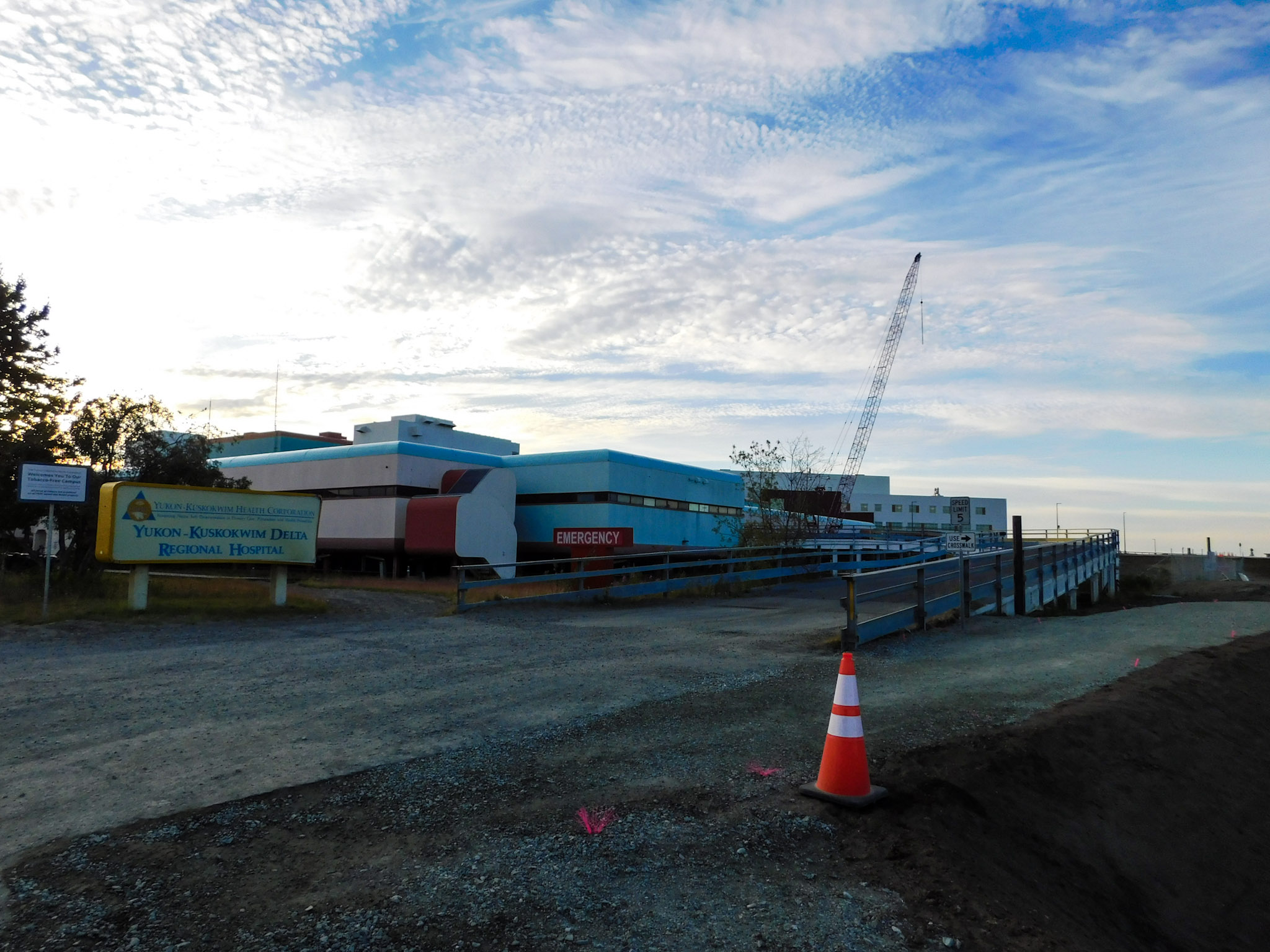
A recently approved immunization drug is helping to limit the severity of a respiratory disease that afflicts young children in Western Alaska, said a report published by the U.S. Centers for Disease Control and Prevention.
The drug, nirsevimab, was effective against respiratory syncytial virus infections when used in the Yukon-Kuskokwim Delta, a rural region known for high rates of that disease among infants, said the report.
The report was authored by officials and doctors with the regional tribal health provider, the CDC, the Alaska Native Tribal Health Consortium and the Alaska Division of Public Health’s epidemiology section.
Nirsevimab kept Yukon-Kuskokwim Delta babies who were diagnosed with RSV from having to be hospitalized, and it kept RSV cases among infants and toddlers in the region mild enough to avoid the need for any visits to medical providers’ clinics or offices, the report said.
Ultimately, the medicine was 89% effective in preventing RSV-related hospitalization during the first season after the Yukon-Kuskokwim Health Corp., the region’s tribal provider, began administering it to babies last year, the report said.
Residents of the Yukon-Kuskokwim Delta are mostly Yup’ik.
Nirsevimab, which goes by the brand name Beyfortus, is an injectable drug. The Food and Drug Administration in July 2023 approved it for newborns and toddlers.
Although it prevents and combats RSV, with effects that last for months, nirsevimab is not a vaccine, said a spokesperson for the CDC.
“Nirsevimab could be described as a ‘long-lasting preventative antibody’ or ‘passive immunization.’ Monoclonal antibodies are not vaccines. They do not activate the immune system. Rather, the antibodies themselves protect against disease,” CDC spokesperson Jasmine Reed said by email. Reed is the media and public affairs leader for the CDC’s National Center for Immunization and Respiratory Diseases.
Shortly after nirsevimab won FDC approval, the YKHC began administering it to babies, as recommended by national and state health officials. By the end of April, the YKHC program administered nirsevimab to 756 children younger than 20 months old — about half of the population of children in that age group in the region, the report said.
There was a noticeable decline in RSV-related hospitalizations in the season after the YKHC program began, according to the CDC report.
In each of the nine prior seasons, an average of 56 children younger than 2 were hospitalized for RSV, the report said. But in the 2023-2024 season, there were only 28 such hospitalizations. Three of the hospitalized children had received nirsevimab prior, but the rest had not.
Such results were promising, the report said. “An adequate, timely nirsevimab supply and increased coverage might further reduce RSV hospitalizations during the 2024–25 season,” it said.
Alaska’s RSV seasons generally start each fall and peak at about midwinter before tapering off in the spring, and they last longer than those in the Lower 48. The 2024-2025 season is now underway.
Nationally, supplies of nirsevimab were scarce last year, but the Yukon-Kuskokwim Delta region was given special priority for deliveries.
The region has historically had the nation’s highest rate of infant hospitalization for the disease.
It is one of the most serious of several medical problems linked to residents’ lack of adequate water and wastewater services and overcrowded housing conditions.
Of the approximately 30 rural Alaska communities that are considered “unserved” because most residents lack piped water, septic tanks or well service, about half are in the Yukon-Kuskokwim region.
Additionally, the overcrowded housing problems that plague rural Alaska communities have traditionally been the worst in the Yukon-Kuskokwim region.
GET THE MORNING HEADLINES.
This story originally appeared on Alaska Beacon on December 2, 2024. It is published under a Creative Commons license (CC BY-NC-ND 4.0).
Alaska Beacon is part of States Newsroom, a nonprofit news network supported by grants and a coalition of donors as a 501c(3) public charity. Alaska Beacon maintains editorial independence. Contact Editor Andrew Kitchenman for questions: info@alaskabeacon.com. Follow Alaska Beacon on Facebook and X.
‘Mr. Secretary, Why are you silent?’: Interior Department cuts impact Indian Country
Cronkite News: Two Spirit Powwow brings community together for celebration
Native America Calling: Native shows and Native content to watch
VIDEO: Oversight Hearing to Examine Native Communities’ Priorities for the 119th Congress
AUDIO: Oversight Hearing to Examine Native Communities’ Priorities for the 119th Congress
AUDIO: Leaving Indian Children Behind: Reviewing the State of BIE Schools
Cronkite News: Native student program shuts down due to President Trump
NAFOA: 5 Things You Need to Know this Week (March 3, 2025)
Filmmaker Julian Brave NoiseCat makes history at Academy Award ceremony
Senate Committee on Indian Affairs schedules business meeting to consider bills
Chuck Hoskin: Cherokee Nation advocates for Indian Country
Native America Calling: Native education advocates assess the new political landscape
AUDIO: American Indian and Alaska Native Public Witness Hearing Day 3
Native America Calling: The Trump administration, endangered fish and a new book
More Headlines